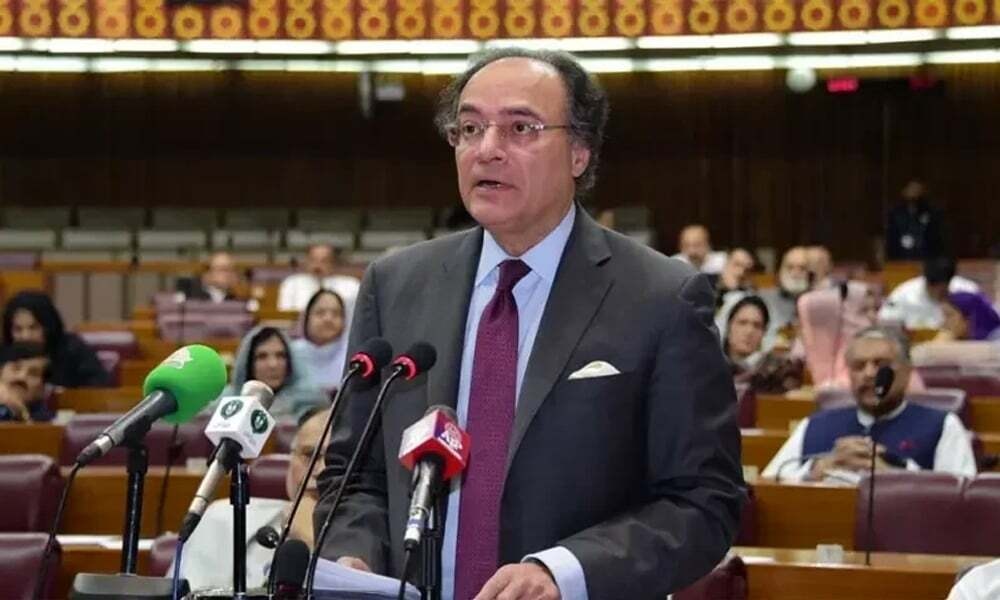PTBP Web Desk
Economic landscape is under intense scrutiny as the government navigates through complex financial challenges. Federal Minister for Finance and Revenue Muhammad Aurangzeb has revealed critical updates on Pakistan’s debt situation and economic health in the National Assembly. Meanwhile, the Commerce Minister shared insights into the nation’s export achievements, particularly in citrus fruits and mangoes, indicating a focus on diversifying and strengthening trade relations. However, these discussions were overshadowed by political turbulence, with PTI lawmakers staging a protest, highlighting the ongoing political instability.
According to Minister Aurangzeb, Pakistan’s total debt has reached a staggering Rs71.3 trillion, representing 67.4% of the GDP as of June 2024. This debt is split into Rs24.1 trillion of external debt and Rs47.2 trillion in domestic debt. The minister emphasized the government’s strategy to manage this debt through maintaining a zero or positive current account deficit before interest payments. He noted that higher growth in Foreign Exchange Earnings (FEE) compared to the interest rate on external public debt would gradually alleviate the debt burden. This approach seems to bear fruit as the current account showed a surplus of $944 million in the first five months of FY 2024-25, a significant turnaround from the previous year’s deficit of $1.676 billion.
In the realm of commerce, Minister for Commerce Jam Kamal Khan reported a robust performance in the export of citrus fruits from July to December 2024-25. Pakistan exported 105,690.3 metric tons of citrus, generating $30.9 million. The largest market was Afghanistan, which alone imported 77,547.44 MT, contributing over 54% to the revenue. Other notable markets included the UAE and Indonesia, showcasing Pakistan’s growing influence in these regions. Similarly, mango exports saw positive traction, with significant shipments to UAE and the UK, highlighting these countries as primary markets for Pakistani mangoes.
Amid these economic discussions, the state of finance, Ali Pervaiz Malik, responded to parliamentary queries about economic reforms. He outlined a comprehensive plan aimed at tackling the undocumented economy, expanding the tax base, and moving away from regressive taxation models. Key among these reforms is a transformation plan for the Federal Board of Revenue (FBR), approved by Prime Minister Shehbaz Sharif, focusing on capacity building and operational efficiency.
The session was not just about economics. PTI lawmakers staged a noisy protest on the sixth day of the assembly session, disrupting proceedings. They demanded the release of their leader, Imran Khan, and their actions included throwing torn agenda copies around and chanting slogans. This led to a walkout by most PTI members, though one member remained to point out the lack of quorum, causing the session to be adjourned and reconvened without much progress due to insufficient attendance.




